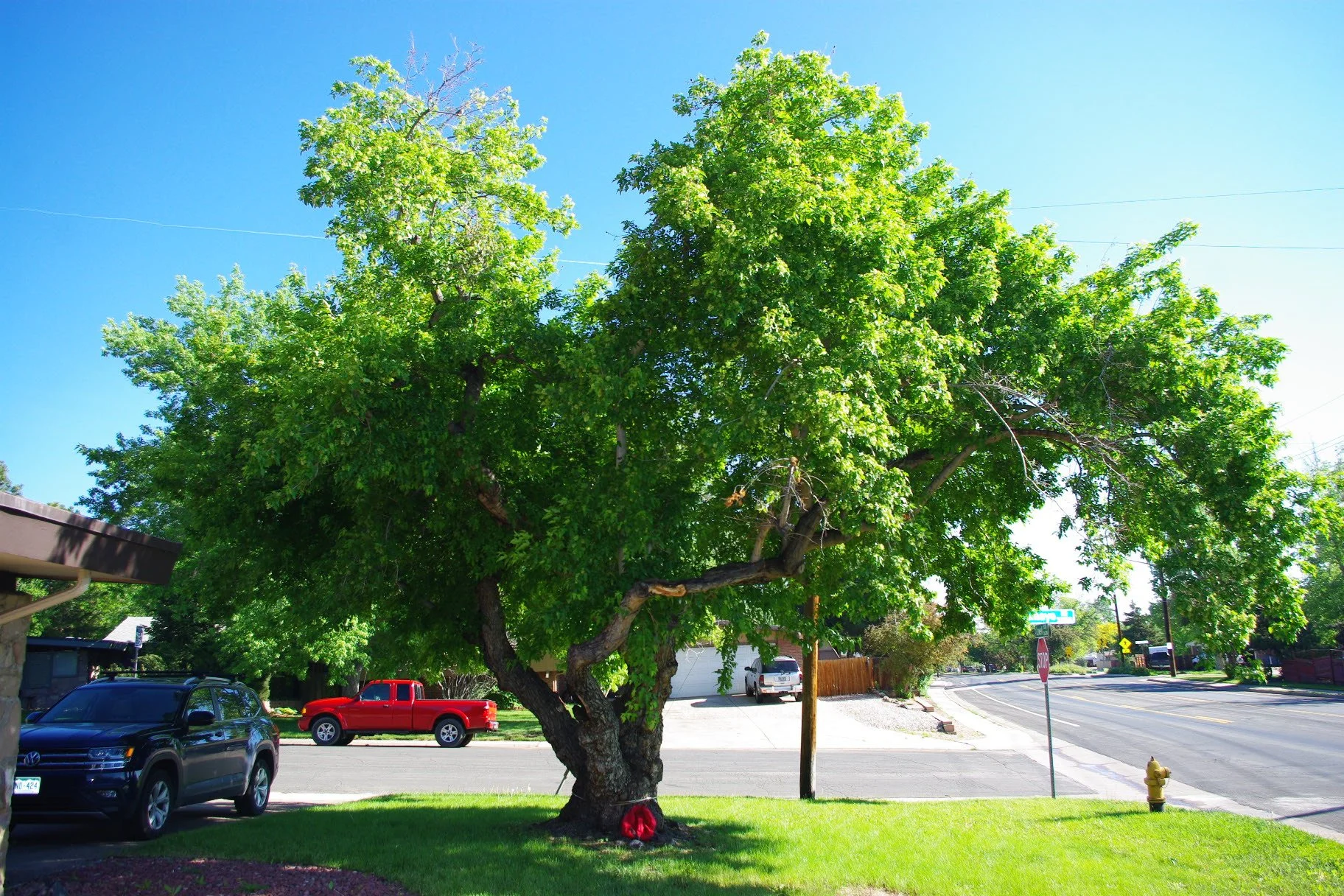Amur maple (Acer ginnala)
Second place champion Amur maple in Denver.
Species info:
Leaves: Opposite, simple; typically three-lobed with the center lobe longer; doubly serrate margins. Dark, shiny green above; lighter green beneath.
Leaflets: None (simple leaf).
Leaf Surface: Glossy above; smooth and lighter beneath.
Bark: Grayish-brown; smooth when young; develops darker vertical grooves with age.
Twigs: Thin, gray-brown; waxy-coated.
Flowers: Small clusters (1–1.5") of yellowish-white, fragrant flowers appearing April–May with leaf emergence.
Fruit: Reddish samaras, 0.75–1" long, with nearly parallel wings; persist into winter.
Botanical: Acer ginnala
Family: Sapindaceae
Mature Height: 15–20 feet
Canopy Spread: Similar to height; rounded crown
Foliage Type: Deciduous
Tree Shape: Variable—multi-stemmed shrub form is common; can be pruned into a small tree. Rounded to spreading habit.
Growth Rate: Moderate
Flowers: Mildly showy, fragrant
Fruit: Certain varieties are ornamental
Fall Color: Good
Water Use: Moderate; performs well in a range of soils with regular moisture but intolerant of wet, poorly drained sites.
Hardiness: Zones 3–8 (performs best in northern climates; less reliable in hot southern exposures)
Soil Preference: Adaptable to a wide range—acidic, clay, or alkaline soils. Prefers well-drained soils. Avoid poorly drained or “winter-wet” soils.
Sun Exposure: Full sun to partial sun (best fall color in full sun)
Wildlife Value: Samaras persist into winter and may be eaten by small birds or mammals; early leaf-out provides early-season cover.
Pests/Pathogens: Generally pest-free; susceptible to Verticillium wilt.
Planting Recommendations: Recommended for most sites, but sites protected from heat
Information Sources:
Front Range Tree Recommendation List
Michael Dirr, Manual of Woody Landscape Plants
Michael Kuhns, Trees of Utah and the Intermountain West


